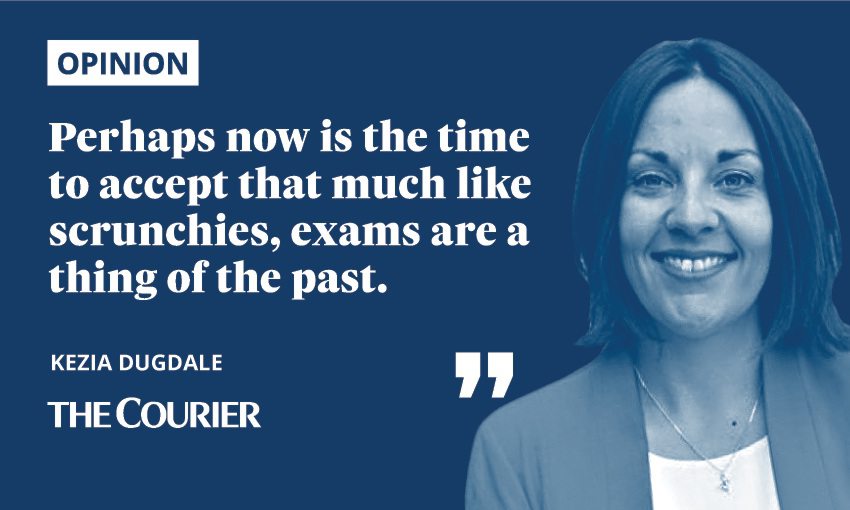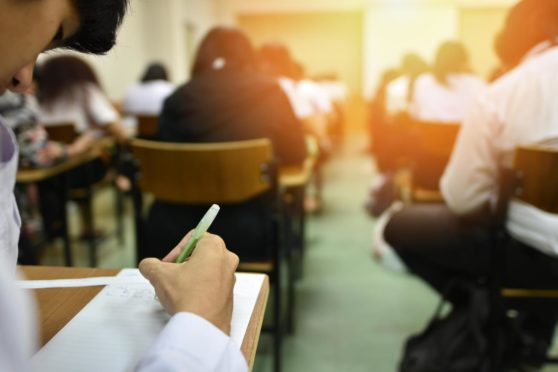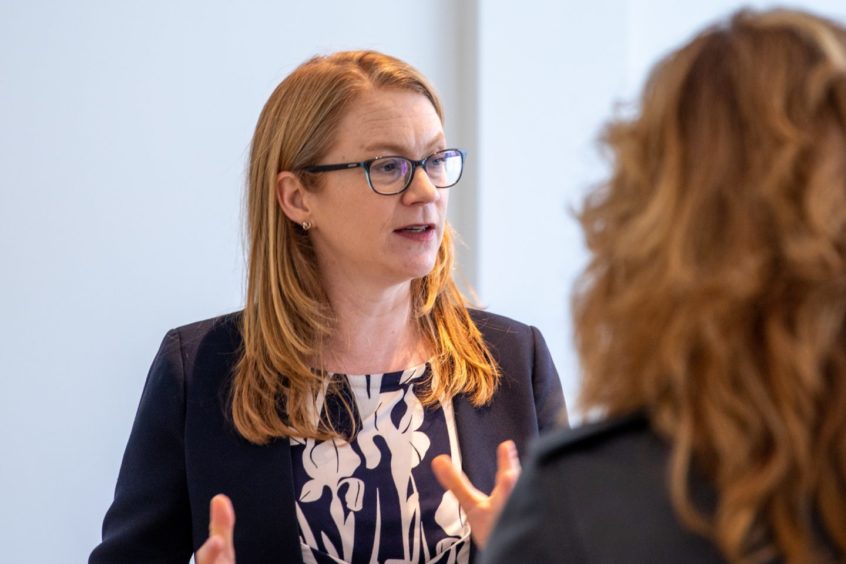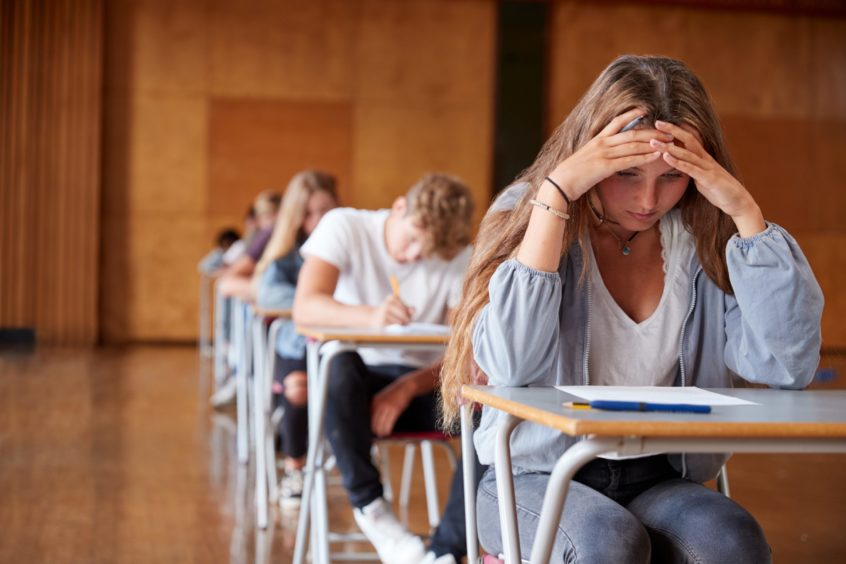Despite now working as a senior lecturer in one of the UK’s leading universities, I still joke that I reached my academic peak while sitting my standard grades in Dundee’s Harris Academy in the late 1990s.
I was the kind of student that exams just worked for. I worked hard for them, but the structure and the process suited my style of learning.
While some of my classmates were doing everything to avoid revising, I was shopping for the perfect set of pencils to colour in my revision timetable from the basement of James Thins in city square.
In return for studying hard, I got great results. Repeating the same process in fifth year got me the grades I needed to study law at Aberdeen and from there I was set for life.

Looking at my school friends now, I can see so many who are excelling in their careers despite having a very different experience of exams to put it mildly.
You can spot the parent of a 15 or 16-year-old a mile off at the moment. They are the ones with tufts of hair in their hands and bright red faces caught between anger and anguish.
Furious that their children may have to endure another exams results debacle and devastated at what the experience of school in lockdown has done to their children’s sense of confidence and belief in a bright future.
Ensuring that this year’s results are fair is clearly the most significant and immediate challenge in the in tray of Shirley-Anne Somerville, the new Cabinet Secretary for Education and Skills, at the moment. Yet fairness is such a subjective term it’s almost meaningless.
How can you force fair results from a school year that’s been so crushingly unfair to every child?
The pandemic has deprived thousands of young Scots of their liberty, access to their peer groups, proper contact with their teachers, PE, youth groups and sports clubs.
Assessments are how we measure learning and exams are just one of a number of tools to do that. Very often students, particularly younger ones, can be assessed without really knowing it.
Essays and coursework are all commonplace activities that can be used but are harder to do when you swap a classroom for a Zoom room.
When is an exam not an exam? When it’s a boorach
This year, there’s no official national exam diet, instead the Scottish Qualifications Authority is using teachers’ judgement as the basis for deciding children’s grades.
But it’s not that judgement alone that’s being requested, teachers have to provide evidence of why each child is worthy of each grade.
Many schools didn’t do prelims because why would you when the exams were cancelled? Other teachers have been told too late that the evidence must meet certain criteria and they’ve been left unconvinced that what they’ve done with their kids meets this standard.
So they’ve had no choice but to get pupils to sit assessments in classrooms, in exam conditions that definitely, categorically, 100% are not exams. It’s a boorach.
That question of fairness again. On one hand, it is fair to have all the pupils in the same place, under the same conditions, sitting the same assessment at the same time.
Yet it is also deeply unfair to spend a whole school year telling those same pupils there won’t be any exams and its coursework that counts.
But would it have been fair to base their results on coursework done under the watchful eye of two dutiful parents in one house, compared to another where a child might be searching for the basics of somewhere quiet to sit and concentrate?
Are we desperately trying to find fairness in a system that was always fundamentally unfair?
In order to deliver the priority of fairness, it’s completely possible that every teacher in the land will have given the most positive predictive grade they can justify for each child, which will then be nodded through by the SQA.
This will then force a debate about standards though and whether an A in Higher Maths this year is worth the same as one five years ago.
And having to endure that kind of unfair scrutiny will mean students having their confidence, and arguably their prospects, knocked once again.
So are we desperately trying to find fairness in a system that was always fundamentally unfair? It’s just another example of so much of life at the moment, where the Covid-19 pandemic has concentrated the inequity that already persisted.
Changed days
Perhaps now is the time to accept that much like scrunchies, exams are a thing of the past.
Children leaving school now aren’t entering a world of work where they will have one job and one career.
Their ability to adapt and adjust, to be able to react to a rapidly changing and unjust world will have a far greater impact on their ability to succeed than what they got in N5 biology in 2021. This past year might prove to be first rate but accidental and inept training for that world.
A bold Cabinet Secretary might decide that exams are cancelled for good and instead start a national conversation about how we assess, count and learn what really matters.


